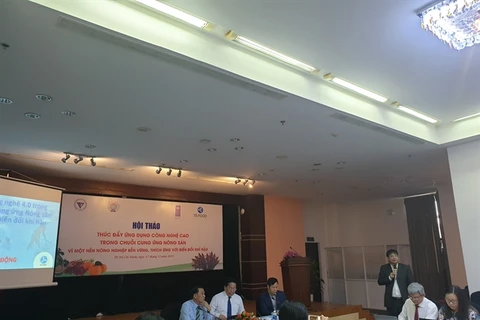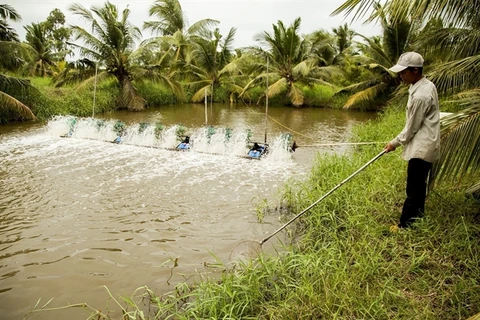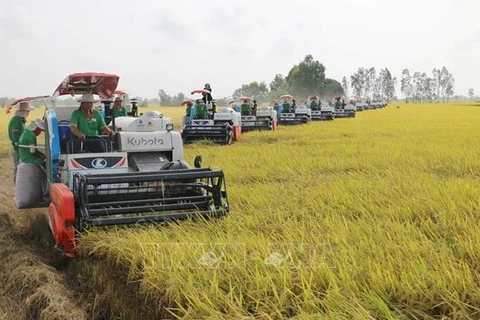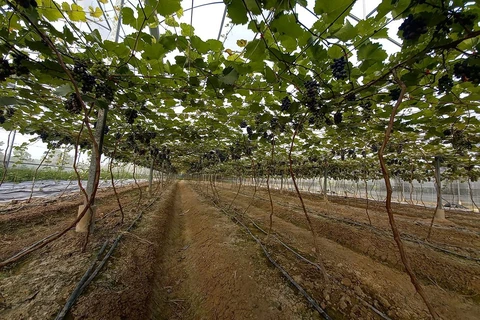Hanoi (VNA) – The application of high-tech or organic practices to agricultural production may come with costs that are higher than conventional methods, but it will help save in the long run for pest control by improving product quality and bringing higher income.
Nguyen Thi Kim Thy, a representative of Viet Safe Vegetables Cooperative in Long An province’s Can Duoc district, said the cooperative decided to grow vegetables in line with organic farming with the desire to bring high quality and safe products to customers.
Instead of using pesticides to kill weeds or pests, growers would use the traditional method or spray the herbal liquid made from herbal eucalyptus to kill pests. Although it costs more, the success is in the products, which are well received by consumers. The cooperative supply about 300kg of vegetable to the market a day at a price of 10,000 VND per kg, Thy said.
High-tech applications are not only widely applied in the cultivation of vegetables but also in raising cattle and shrimps to create a safe and clean living environment for produce, thereby, contributing to boosting their quality.
According to Pham Phuong Thao, director of Organica Investment Joint Stock Company, she always chooses quality and safe food for health first in a meal for the family because using safe food means consumers will avoid and reduce the cost relating to health problems.
 The application of high technology will help save in the long run for pest control by improving product quality and bringing higher income. (Photo: doanhnghiephoinhap.vn)
The application of high technology will help save in the long run for pest control by improving product quality and bringing higher income. (Photo: doanhnghiephoinhap.vn) The application of high technology and organic production will be a key factor to help products achieve this criterion, she said, adding that their price is also higher than other products of the same type. It means that there is more profit in the sales of these products for producers.
Ho Dang Khoa, Deputy General Director of Que Lam Group Joint Stock Company in Ho Chi Minh City said that it is implementing an organic husbandry model in line with a production chain. This model has many outstanding advantages such as not causing odors and good control of the disease.
Participating farmers, in hog rearing, for example, are provided with the sow, animal feed and training on organic farming techniques, he said.
Particularly, they take advantage of local food sources or growing plants to reduce input costs, while animal waste is processed into organic fertiliser serving their cultivation, Khoa added./.
























